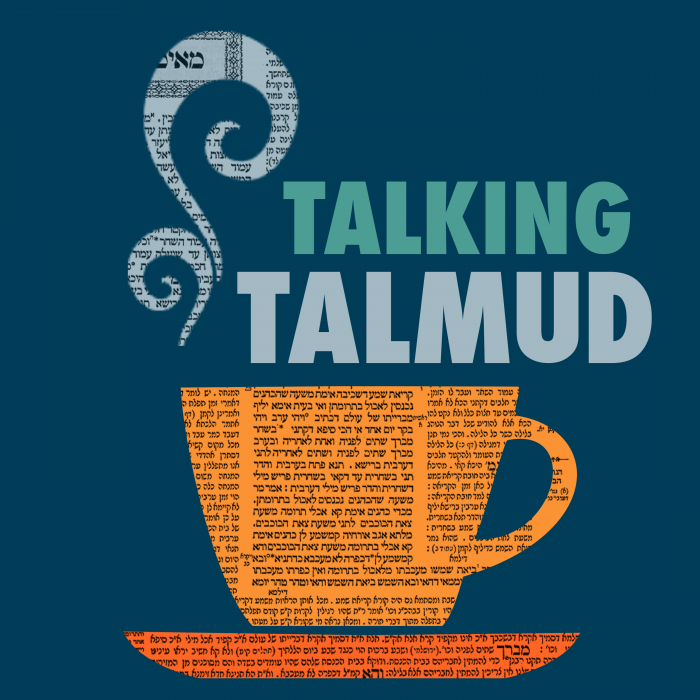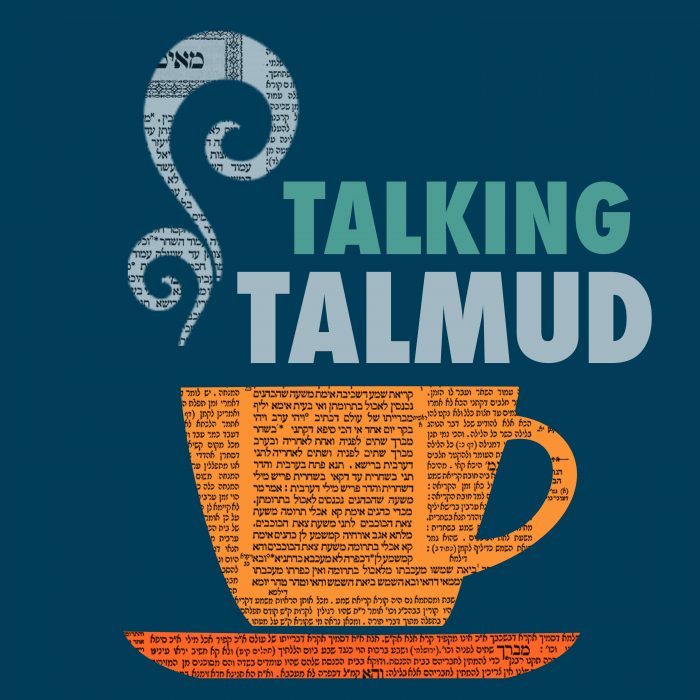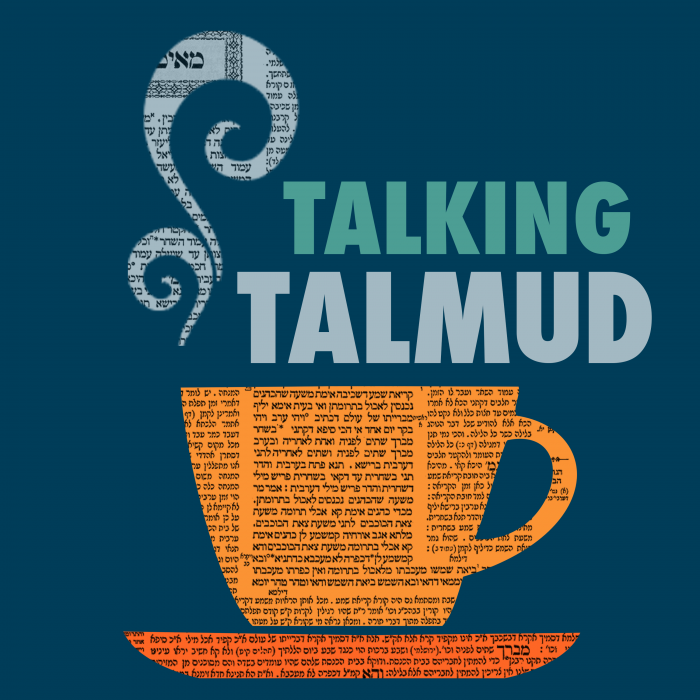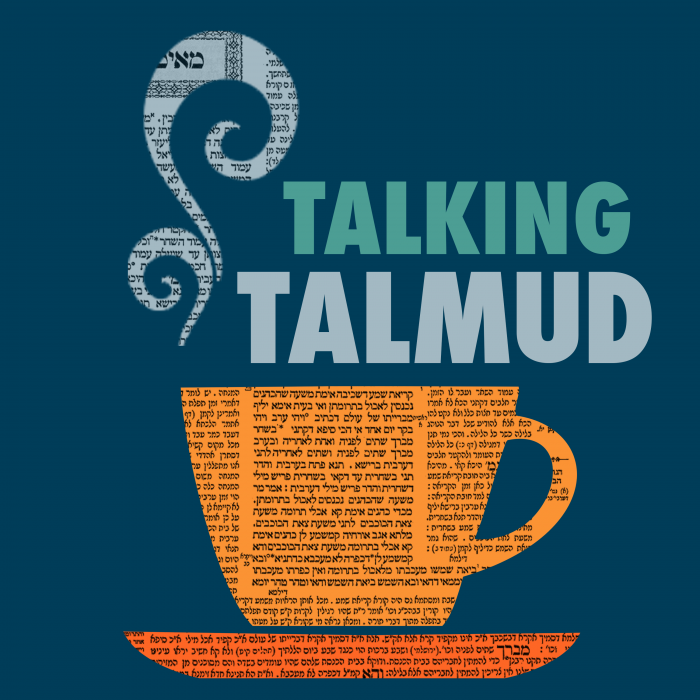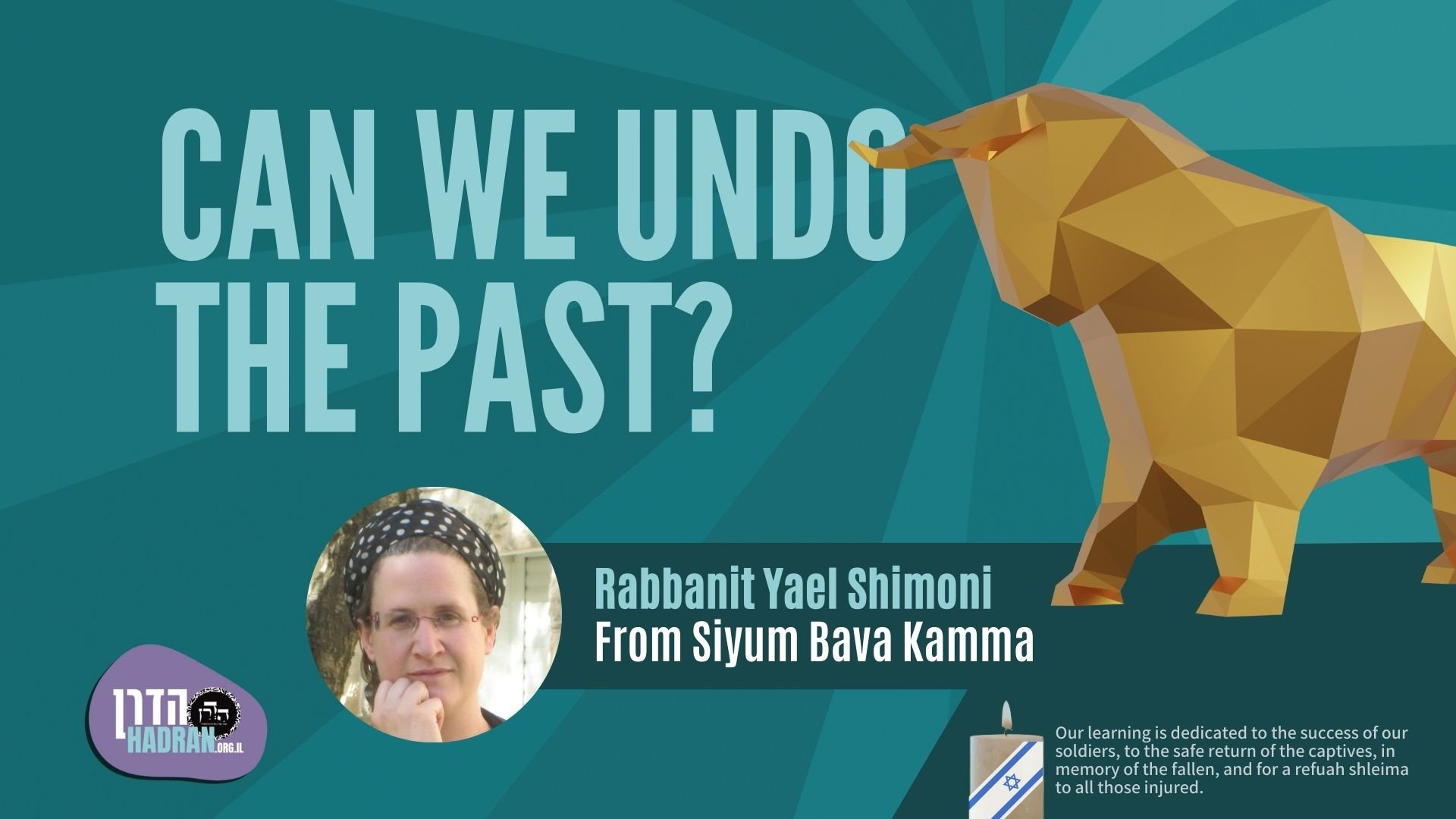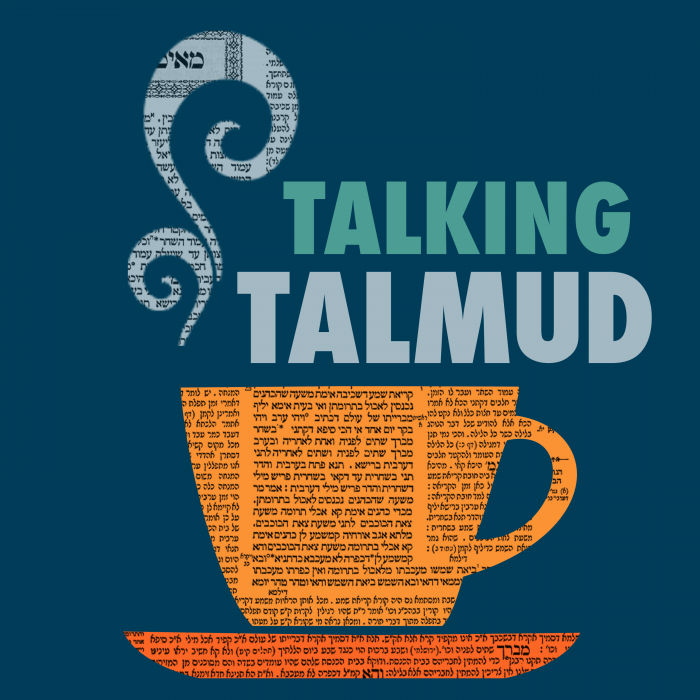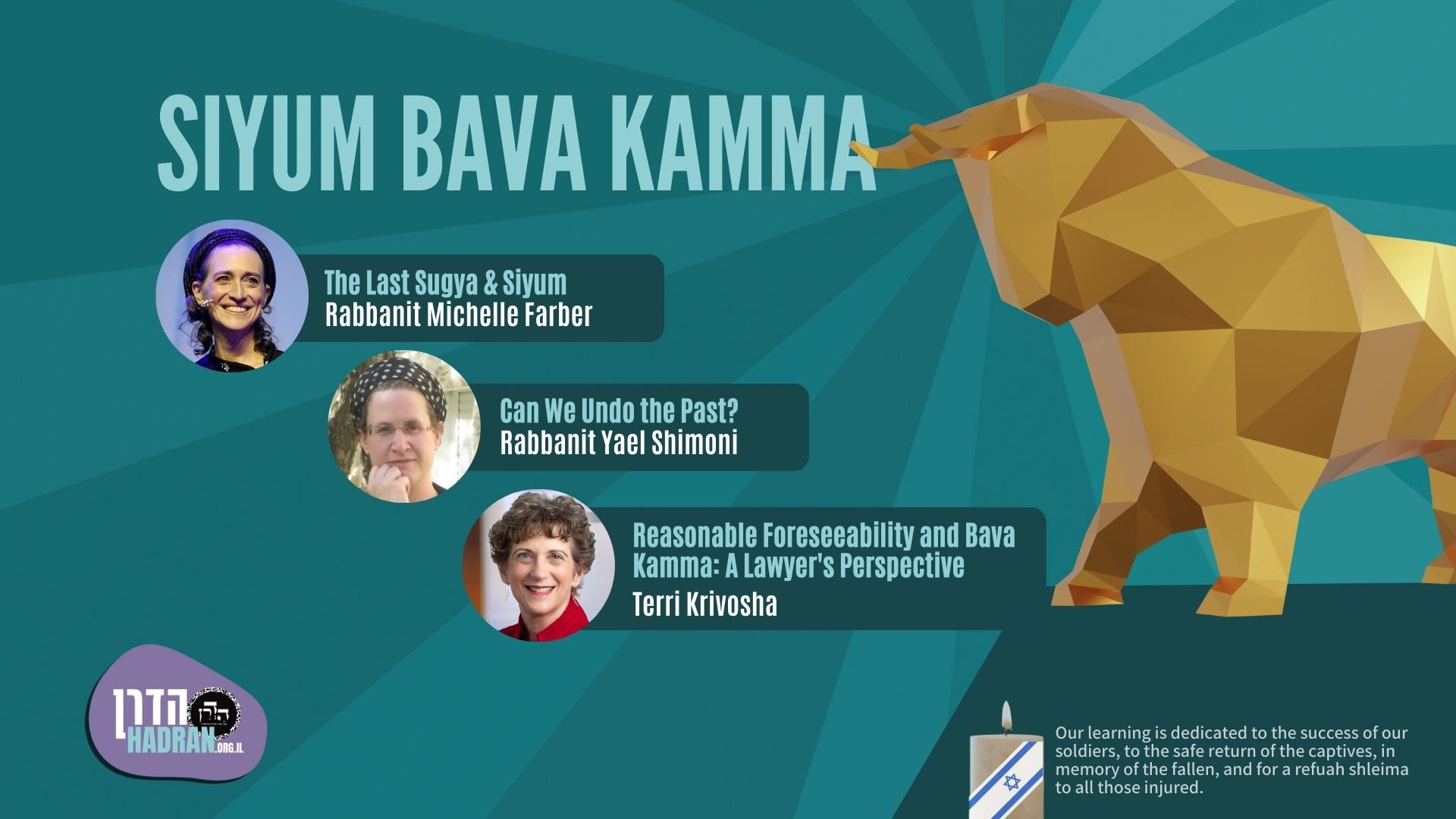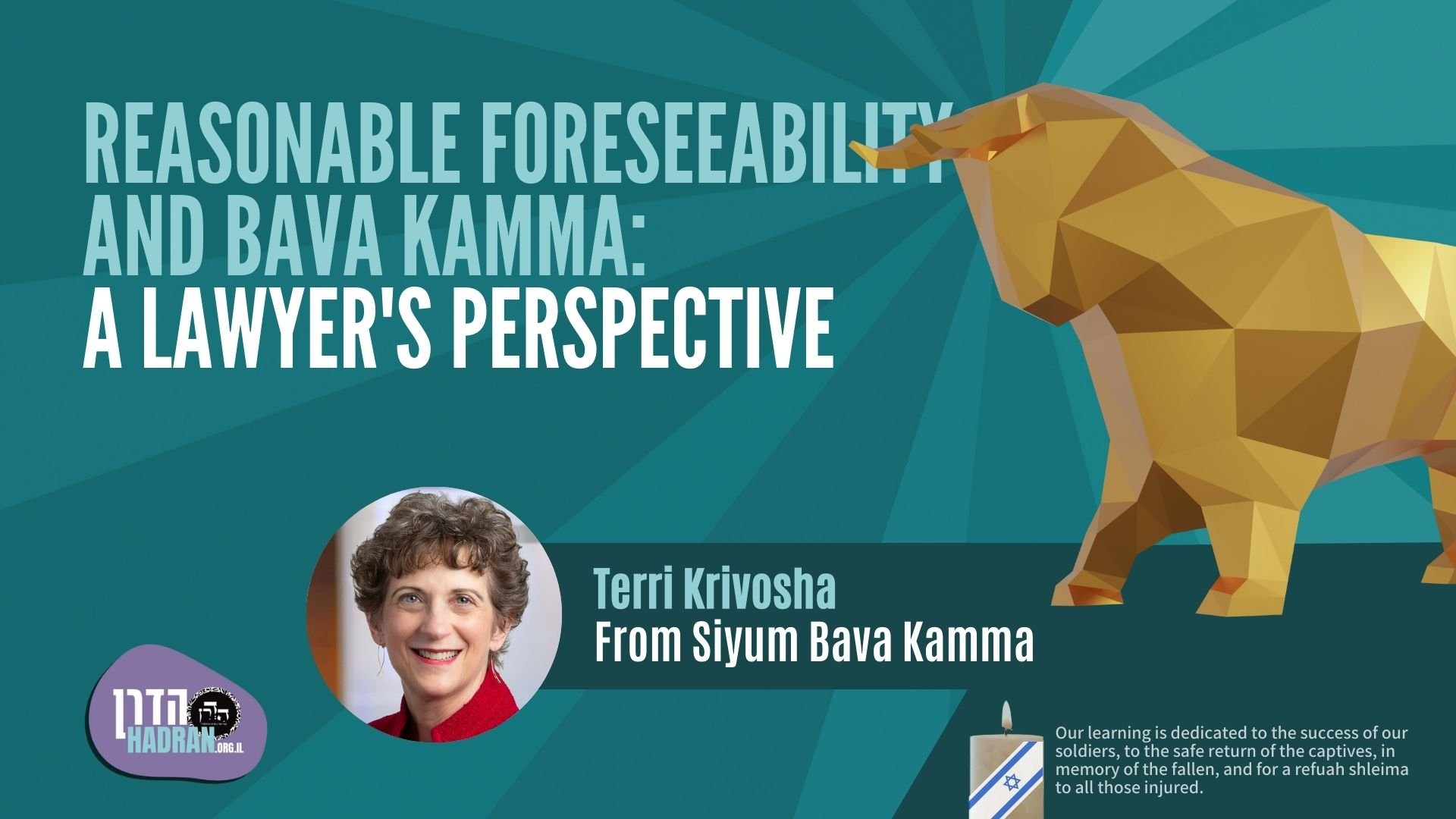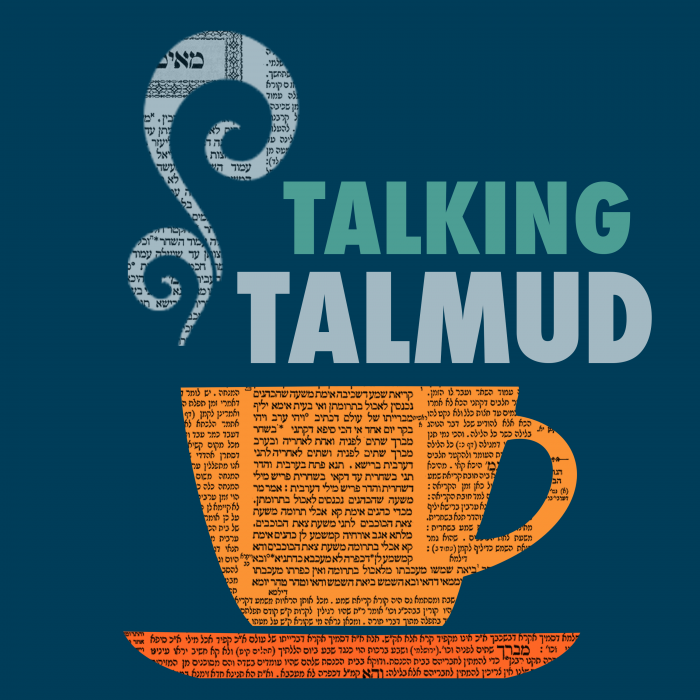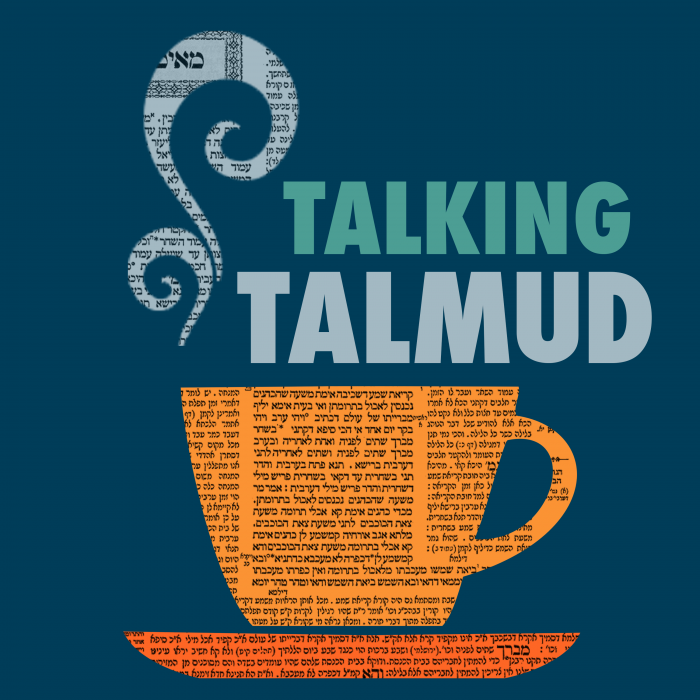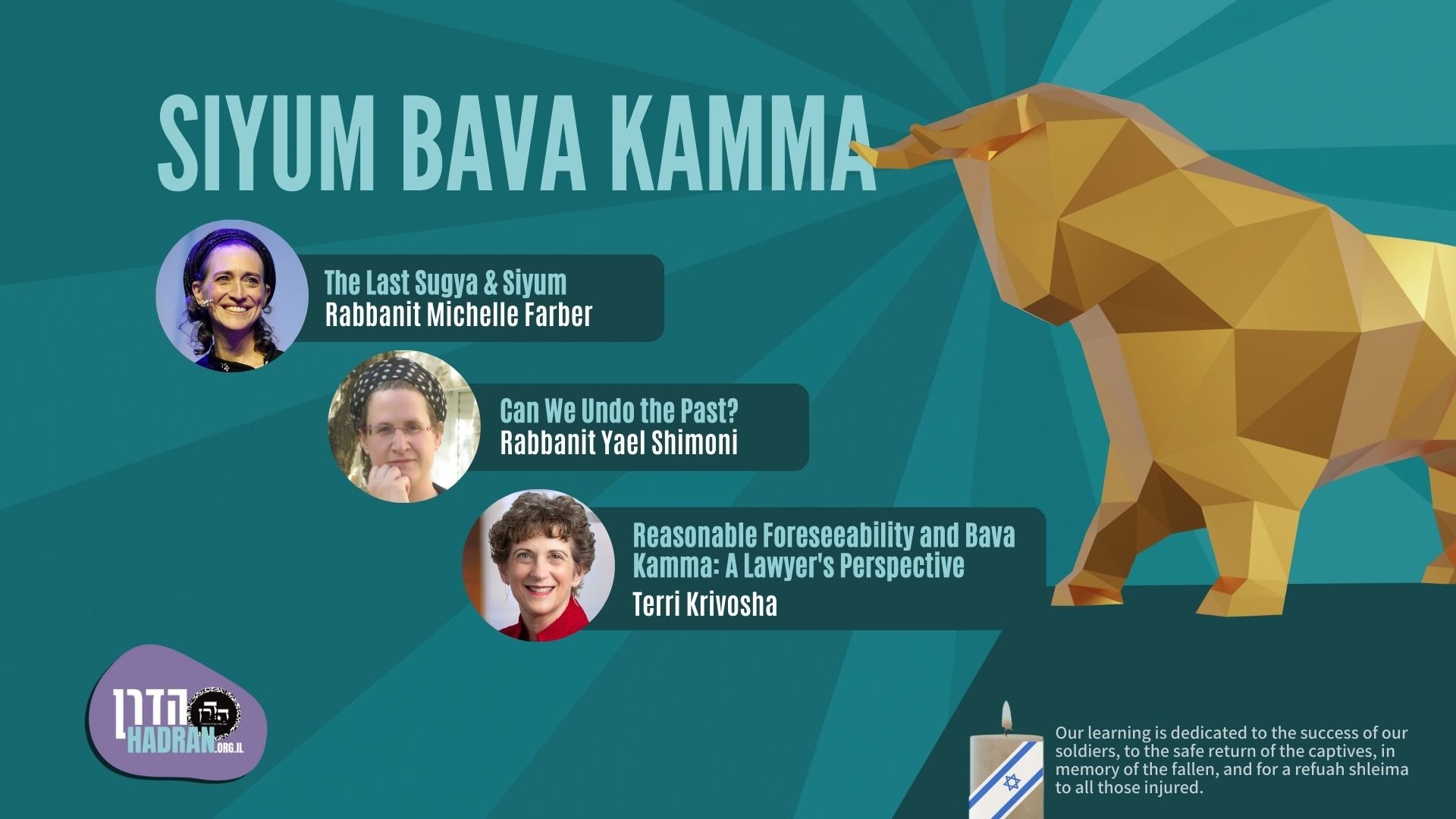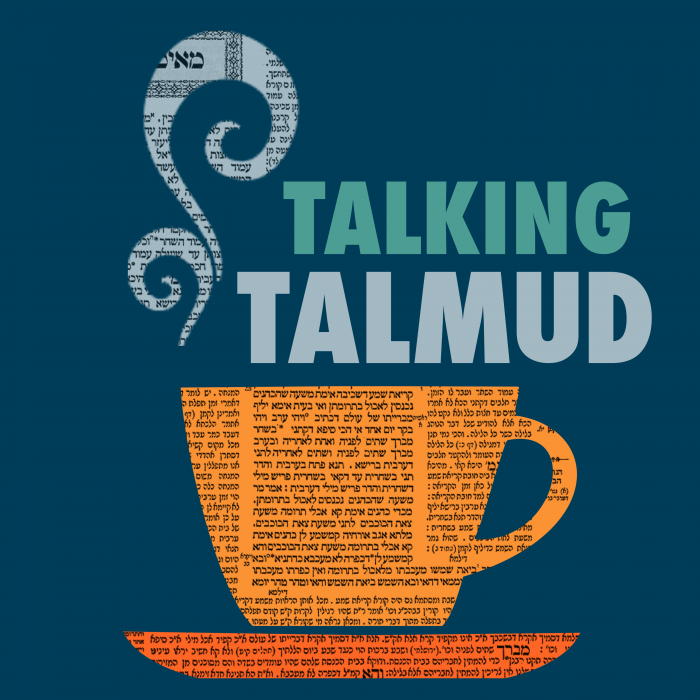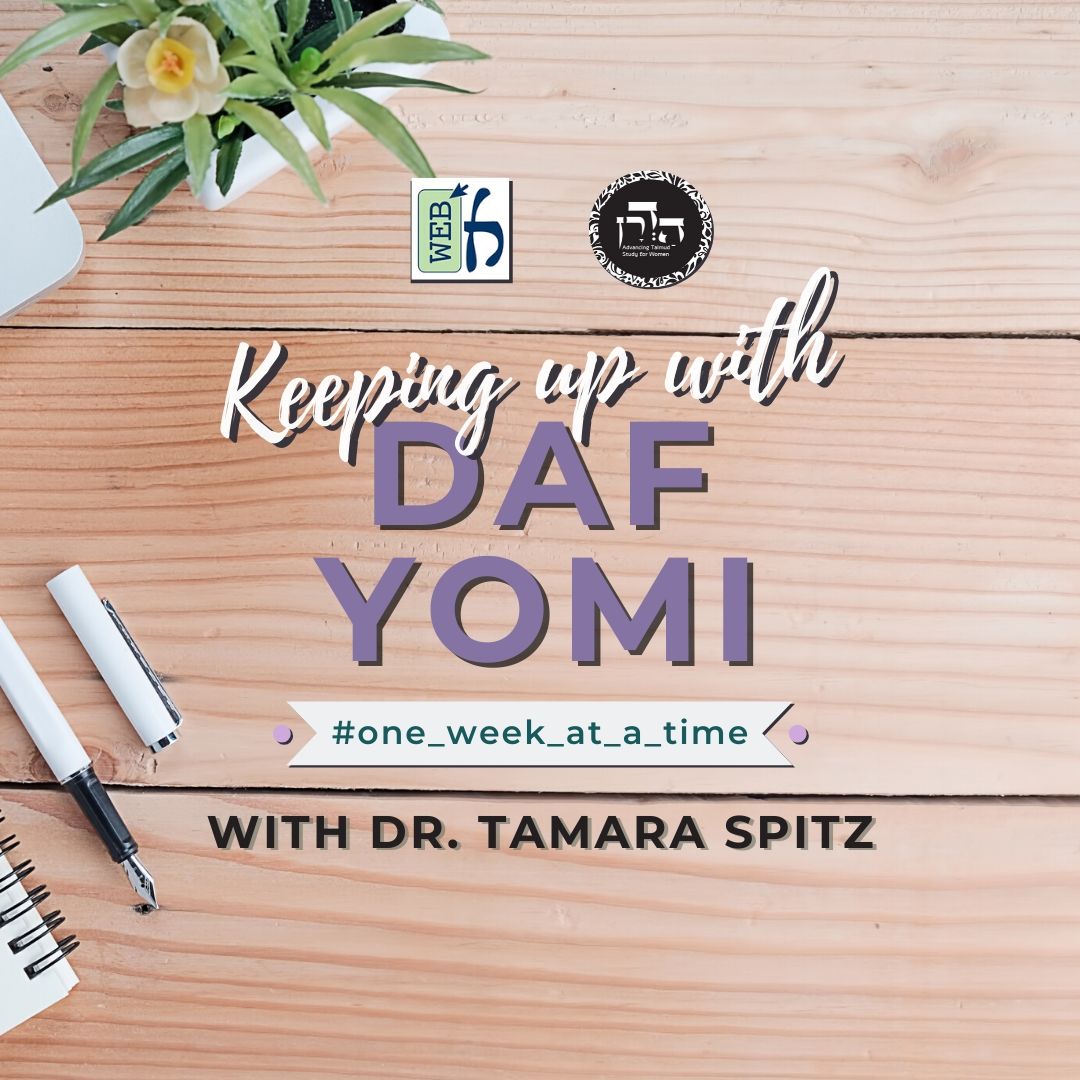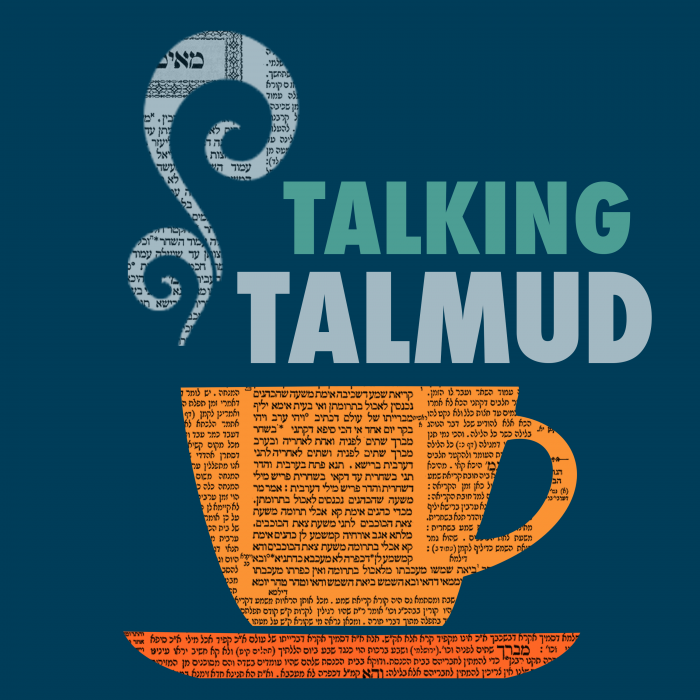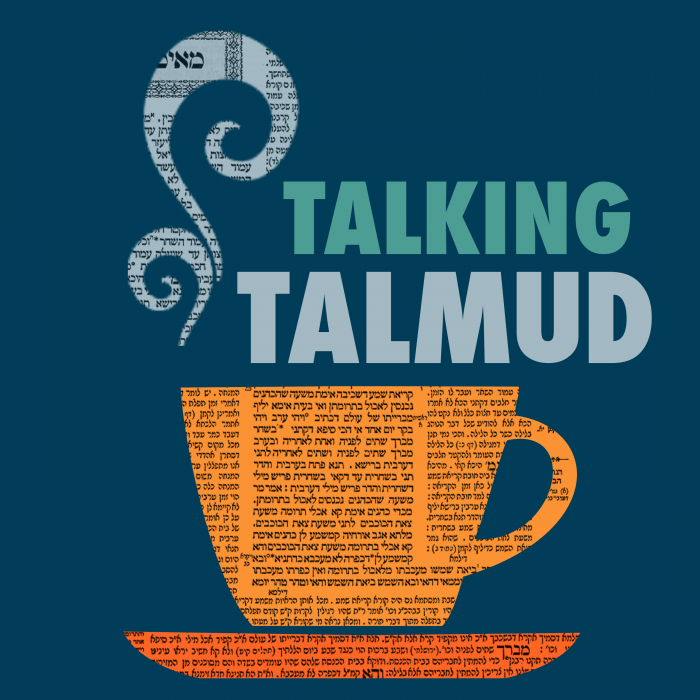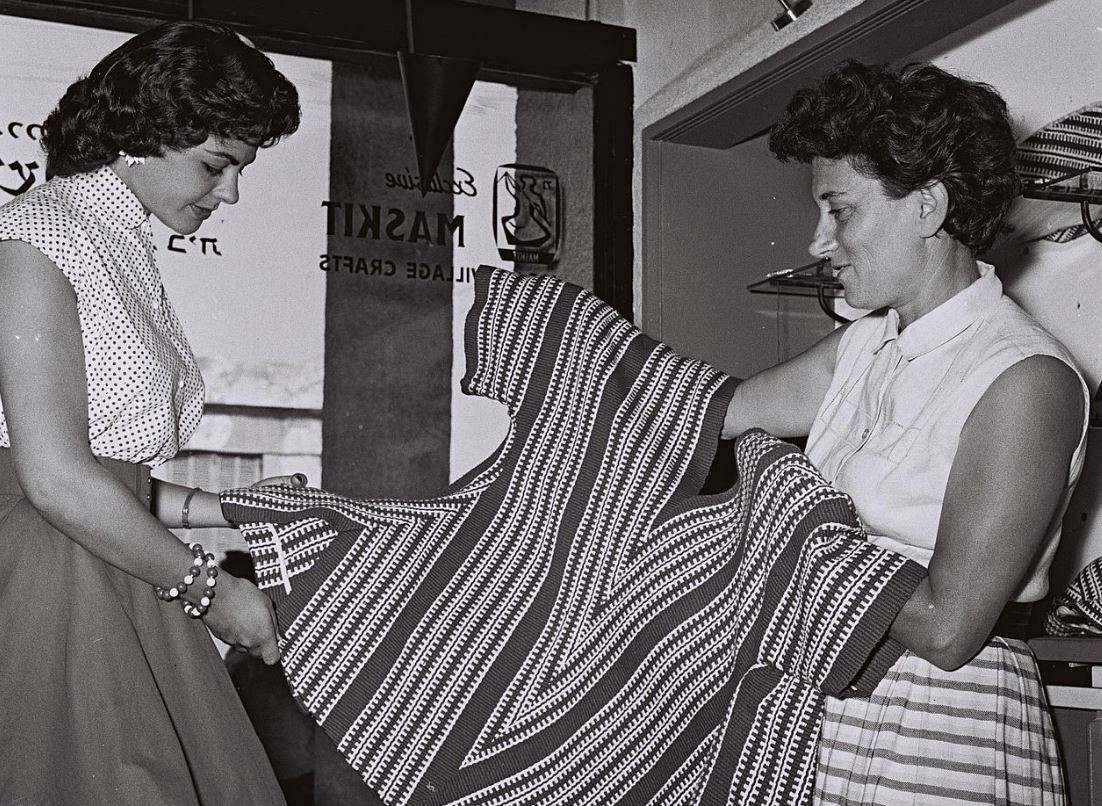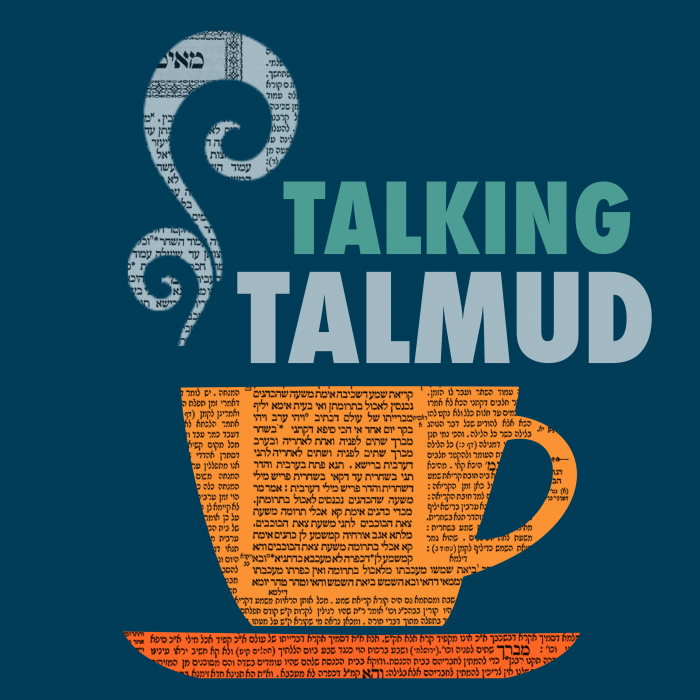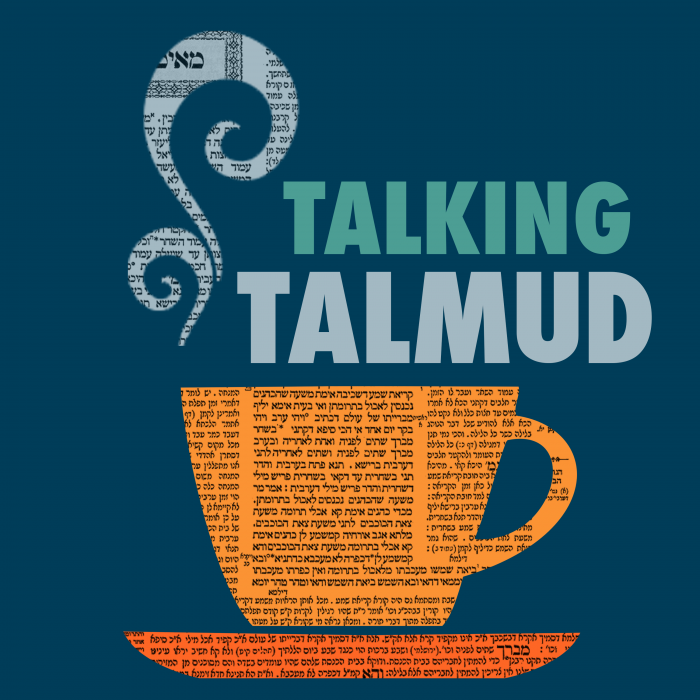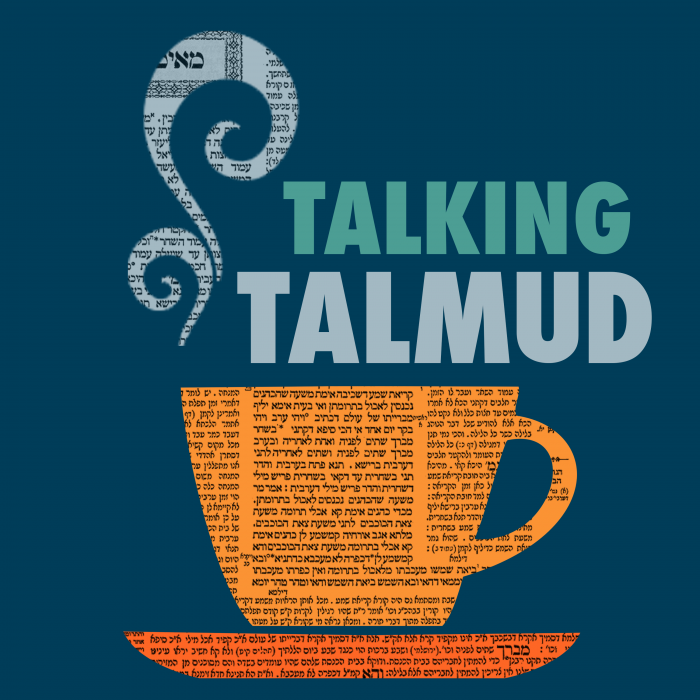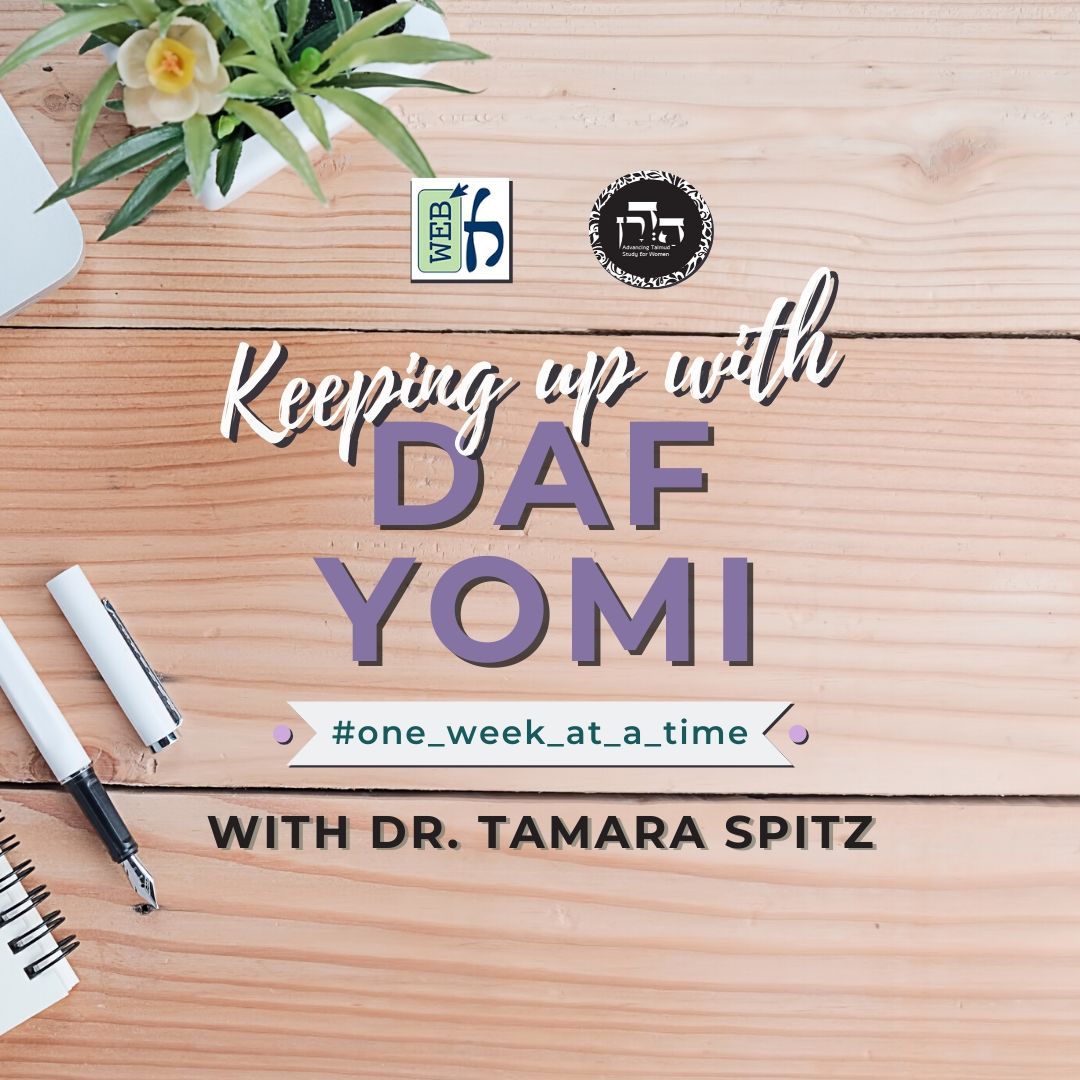Bava Kamma 59
אָכְלָה סְמָדַר – רַבִּי יְהוֹשֻׁעַ אוֹמֵר: רוֹאִין אוֹתָן כְּאִילּוּ הֵן עֲנָבִים עוֹמְדוֹת לִיבָּצֵר, וַחֲכָמִים אוֹמְרִים: רוֹאִין כַּמָּה הָיְתָה יָפָה וְכַמָּה הִיא יָפָה. רַבִּי שִׁמְעוֹן בֶּן יְהוּדָה אוֹמֵר מִשּׁוּם רַבִּי שִׁמְעוֹן: בַּמֶּה דְּבָרִים אֲמוּרִים – בִּזְמַן שֶׁאָכְלָה לוּלְבֵי גְפָנִים וְיִחוּרֵי תְאֵנִים, אֲבָל אָכְלָה פַּגִּים אוֹ בוֹסֶר – רוֹאִין אוֹתָן כְּאִילּוּ עֲנָבִים עוֹמְדוֹת לִיבָּצֵר.
If the animal ate the grapes while they were in the budding stage, Rabbi Yehoshua says: The court views the grapes that were damaged as if they were grapes about to be picked, and appraise the damage based on this. And the Rabbis say: The court views how much the vineyard was worth before the animal ate the grapes, and how much it is worth now. Rabbi Shimon ben Yehuda says in the name of Rabbi Shimon: In what case is this statement, that the court appraises the vineyard or group of trees that were damaged, said? It is when the animal ate young branches [lulevei gefanim] of vines or shoots of fig trees, but where it ate unripe figs or unripe grapes, the court views them and appraises them as if they were grapes ready to be picked.
קָתָנֵי מִיהַת, וַחֲכָמִים אוֹמְרִים: רוֹאִין אוֹתָן כַּמָּה הָיְתָה יָפָה, וְכַמָּה הִיא יָפָה – וְלָא קָתָנֵי בְּשִׁשִּׁים!
Abaye continues: In any event, it teaches that the Rabbis say: The court views how much the vineyard was worth before the animal ate the produce and how much it is worth now, and it does not teach that the court appraises the damage relative to an area sixty times greater.
אֶלָּא מַאי אִית לָךְ לְמֵימַר – בְּשִׁשִּׁים; הָכָא נָמֵי בְּשִׁשִּׁים.
Rather, what have you to say? You must say that the wording employed by the baraita is to be understood to mean that the court appraises the damage relative to an area sixty times greater, so here too, in the baraita dealing with one who himself causes damage, the wording is to be understood to mean that the damage is valued relative to an area sixty times greater.
אָמַר אַבָּיֵי: רַבִּי יוֹסֵי הַגְּלִילִי וְרַבִּי יִשְׁמָעֵאל אָמְרוּ דָּבָר אֶחָד.
Abaye said: Rabbi Yosei HaGelili and Rabbi Yishmael both said the same thing. They are of the same opinion that the appraisal for damages is based on the value of the produce remaining in the field once it ripens.
רַבִּי יוֹסֵי הַגְּלִילִי – הָא דַּאֲמַרַן.
The opinion of Rabbi Yosei HaGelili is this that we stated above in the baraita, i.e., that the damages paid for an animal eating unripe grain are assessed according to what remains of the grain.
רַבִּי יִשְׁמָעֵאל – דְּתַנְיָא: ״מֵיטַב שָׂדֵהוּ וּמֵיטַב כַּרְמוֹ יְשַׁלֵּם״ – מֵיטַב שָׂדֵהוּ שֶׁל נִיזָּק, וּמֵיטַב כַּרְמוֹ שֶׁל נִיזָּק; דִּבְרֵי רַבִּי יִשְׁמָעֵאל. רַבִּי עֲקִיבָא אוֹמֵר: לֹא בָּא הַכָּתוּב אֶלָּא לִגְבּוֹת לַנִּיזָּקִין מִן הָעִידִּית, וְקַל וָחוֹמֶר לַהֶקְדֵּשׁ.
The opinion of Rabbi Yishmael is as it is taught in a baraita: The verse states: “The best of his field and the best of his vineyard he shall pay” (Exodus 22:4), which means he must pay according to the best-quality field of the injured party or the best-quality vineyard of the injured party. This is the statement of Rabbi Yishmael. Rabbi Akiva says: The verse comes only to allow injured parties to collect compensation from the superior-quality land of the one liable to pay for the damage, and by an a fortiori inference it is derived that this applies to consecrated property. Compensation for damaging consecrated property is paid from one’s best-quality assets.
וְלָא תֵּימָא כְּרַב אִידִי בַּר אָבִין – דְּאָמַר רַב אִידִי בַּר אָבִין: כְּגוֹן שֶׁאָכְלָה עֲרוּגָה בֵּין הָעֲרוּגוֹת, וְלָא יָדְעִינַן אִי כְּחוּשָׁה הֲוַאי אִי שְׁמֵינָה הֲוַאי, דְּאָמַר: קוּם שַׁלֵּים שְׁמֵינָה בְּמֵיטַב דְּאִיכָּא הַשְׁתָּא; דְּהָכִי לָא אָמְרִינַן.
And do not say that Rabbi Yishmael’s statement should be interpreted in accordance with the opinion of Rav Idi bar Avin, as Rav Idi bar Avin says: Here it concerns a case where the animal ate the produce of one garden bed from among several garden beds, but we do not know whether the garden bed it ate from was lean or choice. Therefore, the verse says to the owner of the animal: Arise and pay choice land, equivalent to the best-quality land that there is now remaining, and the court does not assume that the animal ate produce from the lesser-quality garden bed, as we do not say this.
מַאי טַעְמָא? הַמּוֹצִיא מֵחֲבֵירוֹ עָלָיו הָרְאָיָה. אֶלָּא בְּמֵיטַב דִּלְקַמֵּיהּ, וּמַאי נִיהוּ – כִּי הַיְאךְ דְּסָלֵיק.
What is the reason that Rabbi Yishmael does not hold in accordance with the opinion of Rav Idi bar Avin? It is because he accepts the principle that the burden of proof rests upon the claimant; without such proof, the owner of the animal pays only the value of a lesser-quality garden bed. Rather, Rabbi Yishmael interprets the Torah’s expression “the best of his field” as requiring payment with the best-quality land before him, and what is this? It is that which remained in the field and subsequently sprouted, and the compensation is based on the value of this.
אָמַר מָר, רַבִּי שִׁמְעוֹן בֶּן יְהוּדָה אוֹמֵר מִשּׁוּם רַבִּי שִׁמְעוֹן: בַּמֶּה דְּבָרִים אֲמוּרִים – שֶׁאָכְלָה לוּלְבֵי גְפָנִים וְיִחוּרֵי תְאֵנִים. הָא סְמָדַר – רוֹאִין אוֹתָן כְּאִילּוּ עֲנָבִים עוֹמְדוֹת לִיבָּצֵר. אֵימָא סֵיפָא: אָכְלָה פַּגִּים אוֹ בוֹסֶר הוּא דְּרוֹאִין אוֹתָן כְּאִילּוּ עֲנָבִים עוֹמְדוֹת לִיבָּצֵר, הָא סְמָדַר – רוֹאִין אוֹתָן כַּמָּה הִיא יָפָה וְכַמָּה הָיְתָה יָפָה!
The Gemara examines the baraita. The Master said: Rabbi Shimon ben Yehuda says in the name of Rabbi Shimon: In what case is this statement that the court appraises the vineyard or group of trees that were damaged said? It is when the animal ate young branches of vines or shoots of fig trees. The Gemara comments: This indicates that if the animal ate budding grapes the court views them and appraises them as if they were grapes ready to be picked. But say, and try to explain accordingly, the latter clause of the baraita, which teaches that if the animal ate unripe figs or half-ripe grapes, that is where the court views them as if they were grapes ready to be picked, indicating that if the animal ate the grapes in the budding stage, the court views how much the vineyard was worth before the animal ate them and how much it is worth now. Therefore, the two clauses of the baraita appear to be contradictory.
אָמַר רָבִינָא, כְּרוֹךְ וּתְנִי: בַּמֶּה דְּבָרִים אֲמוּרִים – בִּזְמַן שֶׁאָכְלָה לוּלְבֵי גְפָנִים וְיִחוּרֵי תְאֵנִים, אֲבָל אָכְלָה סְמָדַר פַּגִּין אוֹ בוֹסֶר – רוֹאִין אוֹתָן כְּאִילּוּ עֲנָבִים עוֹמְדוֹת לִיבָּצֵר.
Ravina said: Bind them together and teach them as a single statement, as follows: In what case is this statement said that the court appraises how much the field was worth when the animal ate from it? It is said in a case when the animal ate young branches of vines or shoots of fig trees. But if it ate grapes in the budding stage, unripe figs, or half-ripe grapes, the court views them and appraises them as if they were grapes ready to be picked.
אִי הָכִי, רַבִּי שִׁמְעוֹן בֶּן יְהוּדָה הַיְינוּ רַבִּי יְהוֹשֻׁעַ!
The Gemara asks: If so, the opinion of Rabbi Shimon ben Yehuda is identical to the opinion of Rabbi Yehoshua with regard to grapes in the budding stage. Why would the mishna state their opinions separately?
אִיכָּא בֵּינַיְיהוּ כְּחַשׁ גּוּפְנָא; וְלָא מְסַיְּימִי.
The Gemara answers: There is a difference between them with regard to the weakening of the vine. A vine is weakened by the grapes growing on it, as they draw nutrients from the roots and branches. Now that the grapes have been eaten, the vine is no longer weakened. Therefore, according to one opinion, the court takes into consideration this reduction of the weakening of the vine, and that amount is deducted when calculating the damages, whereas according to the other opinion, the court does not take this into account. But their respective opinions are not defined, and it is not clear which tanna takes this weakening into account and which does not.
אַבָּיֵי אָמַר: מְסַיְּימִי וּמְסַיְּימִי! מַאן תַּנָּא דְּחָיֵישׁ לִכְחַשׁ גּוּפְנָא – רַבִּי שִׁמְעוֹן בֶּן יְהוּדָה הִיא, דְּתַנְיָא, רַבִּי שִׁמְעוֹן בֶּן יְהוּדָה אוֹמֵר מִשּׁוּם רַבִּי שִׁמְעוֹן בֶּן מְנַסְיָא: אוֹנֵס אֵינוֹ מְשַׁלֵּם אֶת הַצַּעַר, מִפְּנֵי שֶׁסּוֹפָהּ לְהִצְטַעֵר תַּחַת בַּעְלָהּ. אָמְרוּ לוֹ: אֵינוֹ דּוֹמֶה נִבְעֶלֶת בְּרָצוֹן לְנִבְעֶלֶת בְּאוֹנֶס.
Abaye said: Their respective opinions are certainly defined, and it is possible to know which Sage held which opinion, since who is the tanna who is concerned for the weakening of the vine? It is Rabbi Shimon ben Yehuda, as it is taught in a baraita: Rabbi Shimon ben Yehuda says in the name of Rabbi Shimon ben Menasya: With regard to the indemnity payments that a rapist must pay his victim, who had been a virgin, he does not pay compensation for the pain caused by the rape. This is due to the fact that she will ultimately suffer the same pain during her first act of sexual intercourse with her husband when she marries. The Rabbis said to him: The pain of a woman who has intercourse willingly is not comparable to the pain of a woman who has intercourse by rape. Rabbi Shimon ben Yehuda considers future pain when considering payment of damages, and similarly, he considers the reduced weakening of the vine.
אָמַר אַבָּיֵי: הָנֵי תַּנָּאֵי, וְרַבִּי שִׁמְעוֹן בֶּן יְהוּדָה, אָמְרוּ דָּבָר אֶחָד. רַבִּי שִׁמְעוֹן בֶּן יְהוּדָה – הָא דַּאֲמַרַן. הָנֵי תַּנָּאֵי מַאי הִיא –
Abaye said: These tanna’im following and Rabbi Shimon ben Yehuda said the same thing concerning this matter. Rabbi Shimon ben Yehuda said this ruling that we said with regard to the case of rape and the case of the vine. As to these other tanna’im, what is the case about which they gave a similar ruling?
דְּתַנְיָא, רַבִּי יוֹסֵי אוֹמֵר: נְכֵי חַיָּה. בֶּן עַזַּאי אוֹמֵר: נְכֵי מְזוֹנוֹת.
This is as it is taught in a baraita concerning the halakha of one who injured a pregnant woman, thereby causing her to miscarry, for which the Torah holds him liable to pay her husband compensation. Rabbi Yosei says: The court appraises the compensation for the miscarried offspring and deducts the amount they would have paid for a midwife. Since she miscarried, the husband no longer has to pay for a midwife, so that is deducted from the compensation. Ben Azzai says: The court deducts the value of the extra sustenance the husband would have been required to provide for his pregnant wife.
מַאן דְּאָמַר נְכֵי חַיָּה, כׇּל שֶׁכֵּן נְכֵי מְזוֹנוֹת. וּמַאן דְּאָמַר נְכֵי מְזוֹנוֹת, אֲבָל נְכֵי חַיָּה – לָא, דְּאָמַר לֵיהּ: אִתְּתָא דִּידִי פְּקִיחָא הִיא, וְלָא מִבַּעְיָא חַיָּה.
The one who says that the court appraises the compensation for the miscarried offspring less the amount they would have paid for a midwife would all the more so concede that the appraisal is less the value of the extra sustenance. But the one who says that the appraisal is less the value of the extra sustenance does not necessarily hold that the court appraises the compensation for the miscarried offspring less the money they would have paid for a midwife, since the husband can say to the assailant: My wife is capable and does not require a midwife to assist her when giving birth.
רַב פָּפָּא וְרַב הוּנָא בְּרֵיהּ דְּרַב יְהוֹשֻׁעַ עֲבוּד עוֹבָדָא כְּווֹתֵיהּ דְּרַב נַחְמָן בְּשִׁשִּׁים.
Returning to the discussion of the appraisal of compensation for damage, the Gemara relates: Rav Pappa and Rav Huna, son of Rav Yehoshua, acted in accordance with the opinion of Rav Naḥman and appraised a damaged date palm relative to an area sixty times greater than the particular area where the tree was standing.
לִישָּׁנָא אַחֲרִינָא: רַב פָּפָּא וְרַב הוּנָא בְּרֵיהּ דְּרַב יְהוֹשֻׁעַ שָׁמוּ דִּקְלָא אַגַּב קַטִּינָא דְאַרְעָא.
A different version of this halakha is also stated: Rav Pappa and Rav Huna, son of Rav Yehoshua, appraised the damage caused to a date palm relative to the assessment of the patch of land where the tree stood, i.e., how much it was worth with the tree and how much it was worth without it.
וְהִלְכְתָא כְּווֹתֵיהּ דְּרַב פָּפָּא וְרַב הוּנָא בְּרֵיהּ דְּרַב יְהוֹשֻׁעַ בְּדִקְלָא (דַ)אֲרַמָּאָה, וְהִלְכְתָא כְּווֹתֵיהּ דְּרֵישׁ גָּלוּתָא בְּדִקְלָא פָרְסָאָה.
The Gemara concludes: And the halakha is in accordance with the opinion of Rav Pappa and Rav Huna, son of Rav Yehoshua, with regard to an Aramean date palm, i.e., one of lesser quality, and it is assessed relative to the land, but the halakha is in accordance with the opinion of the Exilarch with regard to a Persian date palm, as they are of higher quality and each one is valuable, and it is not assessed relative to the land.
אֱלִיעֶזֶר זְעֵירָא
The Gemara relates: Eliezer Ze’eira
הֲוָה סָיֵים מְסָאנֵי אוּכָּמֵי, וְקָאֵי בְּשׁוּקָא דִנְהַרְדְּעָא. אַשְׁכְּחוּהּ דְּבֵי רֵישׁ גָּלוּתָא וַאֲמַרוּ לֵיהּ: מַאי שְׁנָא הָנֵי מְסָאנֵי? אֲמַר לְהוּ: דְּקָא מִאֲבִילְנָא אַיְּרוּשָׁלַיִם. אֲמַרוּ לֵיהּ: אַתְּ חֲשִׁיבַתְּ לְאִיתְאֲבוֹלֵי אַיְּרוּשָׁלַיִם? סְבוּר יוּהֲרָא הֲוָה, אַתְיוּהּ וְחַבְשׁוּהּ.
was wearing black shoes, unlike the Jewish custom of that time, and standing in the market of Neharde’a. Officials of the house of the Exilarch found him and said to him: What is different about you that causes you to wear these shoes? He said to them: I am wearing them because I am in mourning over the destruction of the Temple and Jerusalem, and so I wear black shoes, as is the custom of mourners. They said to him: Are you a man of such importance to publicly mourn over Jerusalem? They thought that it was simply presumptuousness on his part. Since he was acting against the prevalent Jewish custom, they brought him to the prison and incarcerated him.
אֲמַר לְהוּ: גַּבְרָא רַבָּה אֲנָא. אֲמַרוּ לֵיהּ: מְנָא יָדְעִינַן? אֲמַר לְהוּ: אוֹ אַתּוּן בְּעוֹ מִינַּאי מִילְּתָא, אוֹ אֲנָא אִיבְעֵי מִינַּיְיכוּ מִילְּתָא. אֲמַרוּ לֵיהּ: בְּעִי אַתְּ.
Eliezer Ze’eira said to them: I am a great man, a scholar, and it is fitting for me to mourn publicly over the destruction of Jerusalem. They said to him: How do we know that you are a scholar? He said to them: Either you ask of me a matter of halakha and I will answer you, or I will ask you a matter of halakha and you will answer me. They said to him: You ask.
אֲמַר לְהוּ: הַאי מַאן דְּקַץ כּוּפְרָא, מַאי מְשַׁלֵּם? אֲמַרוּ לֵיהּ: מְשַׁלֵּם דְּמֵי כוּפְרָא. וְהָא הֲווֹ תַּמְרֵי! אֲמַרוּ לֵיהּ: מְשַׁלֵּם דְּמֵי תַמְרֵי. אֲמַר לְהוּ: וְהָא לָאו תַּמְרֵי שְׁקַל מִינֵּיהּ!
He said to them: With regard to one who cuts a cluster of flowers on the stem of a date palm belonging to another, what is he required to pay? They said to him: He pays the value of the date stem. He said to them: But ultimately they will become ripe dates, which are worth more. They said to him: If so, he pays the value of the future dates. He said to them: But he did not take ripe dates from the other person, so how can the court obligate him to pay for damage that he did not cause?
אֲמַרוּ לֵיהּ: אֵימָא לַן אַתְּ. אֲמַר לְהוּ: בְּשִׁשִּׁים. אֲמַרוּ לֵיהּ: מַאן אָמַר כְּווֹתָיךְ? אֲמַר לְהוּ: הָא שְׁמוּאֵל חַי וּבֵית דִּינוֹ קַיָּים. שַׁדַּרוּ קַמֵּיהּ דִּשְׁמוּאֵל, אָמַר לְהוּ: שַׁפִּיר קָאָמַר לְכוּ בְּשִׁשִּׁים, וְשַׁבְקוּהּו.
They said to Eliezer Ze’eira: You tell us the correct appraisal for the date stem. He said to them: The court appraises the damage relative to a similar piece of land sixty times the size. They said to him: Who says an opinion as you do, so that you can prove you are correct? He said to them: Shmuel is alive and his court exists; you can ask him. They sent the question before Shmuel, together with the ruling of Eliezer Ze’eira. Shmuel said to them: He is saying well to you, because the halakha is as he says; the appraisal is relative to an area sixty times greater. Upon hearing this, the officials of the Exilarch realized that he was a great man and they released him.
רַבִּי שִׁמְעוֹן אוֹמֵר: אָכְלָה פֵּירוֹת גְּמוּרִים כּוּ׳. מַאי טַעְמָא? הָא דְּאָמַר רַחֲמָנָא ״וּבִעֵר בִּשְׂדֵה אַחֵר״ – מְלַמֵּד שֶׁשָּׁמִין עַל גַּב הַשָּׂדֶה, הָנֵי מִילֵּי מִידֵּי דִּצְרִיךְ לְשָׂדֶה; הָנֵי, כֵּיוָן דְּלָא צְרִיכִי לְשָׂדֶה – בְּעֵינַיְיהוּ בָּעֵי שַׁלּוֹמֵי.
§ The mishna (55b) teaches that Rabbi Shimon says: If the animal ate ripe produce, the owner pays the value of the ripe produce eaten. What is the reason for Rabbi Shimon’s opinion? This that the Merciful One states in the Torah: “And it feed in another’s field” (Exodus 22:4), which teaches that the court appraises the damage relative to another field, this statement applies specifically with regard to produce that requires a field to grow. For one’s animal eating this produce, which do not require the field in order to ripen further, the animal’s owner must pay their value as they are.
אָמַר רַב הוּנָא בַּר חִיָּיא אָמַר רַבִּי יִרְמְיָה בַּר אַבָּא: דָּן רַב כְּרַבִּי מֵאִיר, וּפְסַק הִלְכְתָא כְּרַבִּי שִׁמְעוֹן.
Rav Huna bar Ḥiyya says that Rabbi Yirmeya bar Abba says: Rav judged a practical halakha on a certain issue in accordance with the opinion of Rabbi Meir, despite the fact that in general the halakha is not in accordance with his opinion. And furthermore, he ruled that the halakha is in accordance with the opinion of Rabbi Shimon, even though in that case his was a minority opinion.
דָּן רַב כְּרַבִּי מֵאִיר – דְּתַנְיָא: כָּתַב לָרִאשׁוֹן וְלֹא חָתְמָה לוֹ, לַשֵּׁנִי וְחָתְמָה לוֹ – אִבְּדָה כְּתוּבָּתָהּ, דִּבְרֵי רַבִּי מֵאִיר. רַבִּי יְהוּדָה אוֹמֵר, יְכוֹלָה הִיא שֶׁתֹּאמַר: נַחַת רוּחַ עָשִׂיתִי לְבַעְלִי, אַתֶּם מָה לָכֶם עָלַי.
Rav Huna bar Ḥiyya explains: Rav judged a practical halakha in accordance with the opinion of Rabbi Meir, as it is taught in a baraita: In the case of a field designated by its owner as a lien for his wife’s marriage contract, which he subsequently wants to sell, if he wrote a document of sale to a first buyer, but his wife did not sign for him to endorse the sale, and subsequently the husband wrote a document of sale to a second buyer, and his wife signed for him, she thereby loses the lien of her marriage contract, since the sale is effective and she can no longer collect from this field; this is the statement of Rabbi Meir. Rabbi Yehuda says that she can say: I did it only to please my husband, but I did not mean it and never intended to forgo my rights. What claim do you, the purchasers, have against me? Therefore, the lien is still in effect. Rav judged a case in accordance with the opinion of Rabbi Meir.
וּפְסַק הִלְכְתָא כְּרַבִּי שִׁמְעוֹן – כִּי הָא דִּתְנַן, רַבִּי שִׁמְעוֹן אוֹמֵר: אָכְלָה פֵּירוֹת גְּמוּרִין – מְשַׁלֶּמֶת פֵּירוֹת גְּמוּרִין; אִם סְאָה – סְאָה, אִם סָאתַיִם – סָאתַיִם.
And Rav ruled that the halakha is in accordance with the opinion of Rabbi Shimon, as we learned in the mishna: Rabbi Shimon says: If one’s animal ate ripe produce, the owner pays the value of ripe produce eaten. Therefore, if it ate one se’a of produce, he pays the value of one se’a of produce, and if it ate two se’a, he pays for two se’a. Although Rabbi Shimon’s opinion is the minority one, Rav ruled in accordance with it.
מַתְנִי׳ הַמַּגְדִּישׁ בְּתוֹךְ שְׂדֵה חֲבֵירוֹ שֶׁלֹּא בִּרְשׁוּת, וַאֲכָלָתַן בְּהֶמְתּוֹ שֶׁל בַּעַל הַשָּׂדֶה – פָּטוּר. וְאִם הוּזְּקָה בָּהֶן – בַּעַל הַגָּדִישׁ חַיָּיב. וְאִם הִגְדִּישׁ בִּרְשׁוּת – בַּעַל הַשָּׂדֶה חַיָּיב.
MISHNA: In a case of one who stacks his produce in another’s field without permission from the owner of that field, and an animal belonging to the owner of the field eats the produce, the owner of the field is exempt. And if the animal is injured by the produce, the owner of the stack is liable. But if he stacked them in that field with permission, the owner of the field is liable for damage caused to the produce.
גְּמָ׳ לֵימָא תְּנַן דְּלָא כְּרַבִּי? דְּאִי כְּרַבִּי, הָאָמַר: עַד שֶׁיְּקַבֵּל עָלָיו בַּעַל הַבַּיִת לִשְׁמוֹר! אָמַר רַב פָּפָּא: הָכָא – בְּנָטַר בֵּי דָרֵי עָסְקִינַן, דְּכֵיוָן דַּאֲמַר לֵיהּ: ״עַיֵּיל וּגְדוֹשׁ״ – ״עַיֵּיל וְאֶנְטַר לָךְ״ הוּא.
GEMARA: The Gemara asks: Shall we say that that which we learned in the mishna is not in accordance with the opinion of Rabbi Yehuda HaNasi? As, if the mishna were in accordance with the opinion of Rabbi Yehuda HaNasi, doesn’t he say: A homeowner who gives another permission to bring items into his courtyard is not responsible for them unless the homeowner accepts on himself to safeguard them? The mishna does not mention any such acceptance of responsibility. Rav Pappa said: Here we are dealing with the supervisor of the threshing floors, to whom people would entrust their produce. As, since the supervisor says to the owner of the produce: Bring it in and stack it, it is as though he had said to him: Bring it in and I will supervise it for you.
מַתְנִי׳ הַשּׁוֹלֵחַ אֶת הַבְּעֵרָה בְּיַד חֵרֵשׁ שׁוֹטֶה וְקָטָן – פָּטוּר בְּדִינֵי אָדָם, וְחַיָּיב בְּדִינֵי שָׁמַיִם. שִׁלַּח בְּיַד פִּקֵּחַ – הַפִּקֵּחַ חַיָּיב.
MISHNA: One who sends a fire, i.e., places a burning object, in the hand of a deaf-mute, an imbecile, or a minor is exempt for any damage later caused by the fire according to human laws but liable according to the laws of Heaven. If he sent it in the hand of a halakhically competent person, the halakhically competent person is liable, not the one who sent him.
אֶחָד הֵבִיא אֶת הָאוּר וְאֶחָד הֵבִיא אֶת הָעֵצִים – הַמֵּבִיא אֶת הָעֵצִים חַיָּיב. אֶחָד הֵבִיא אֶת הָעֵצִים וְאֶחָד הֵבִיא אֶת הָאוּר – הַמֵּבִיא אֶת הָאוּר חַיָּיב.
If one person brought the fire, and one other person subsequently brought the wood, causing the fire to spread, the one who brought the wood is liable for any damage caused. Conversely, if one person first brought the wood, and subsequently one other person brought the fire, the one who brought the fire is liable, since it was he who actually kindled the wood.
בָּא אַחֵר וְלִיבָּה – הַמְלַבֶּה חַיָּיב. לִיבְּתָה הָרוּחַ – כּוּלָּן פְּטוּרִין.
If another came and fanned the flame, and as a result the fire spread and caused damage, the one who fanned it is liable, since he is the proximate cause of the damage. If the wind fanned the flames, all the people involved are exempt, since none of them actually caused the damage.
גְּמָ׳ אָמַר רֵישׁ לָקִישׁ מִשְּׁמֵיהּ דְּחִזְקִיָּה: לֹא שָׁנוּ אֶלָּא שֶׁמָּסַר לוֹ גַּחֶלֶת וְלִיבָּהּ, אֲבָל מָסַר לוֹ שַׁלְהֶבֶת – חַיָּיב, מַאי טַעְמָא? מַעֲשָׂיו קָא גָרְמוּ לוֹ.
GEMARA: Reish Lakish says in the name of Ḥizkiyya: They taught that one who sends fire in the hand of a deaf-mute, an imbecile, or a minor is exempt only when he conveyed to him a glowing coal and one of these people fanned it himself and set it alight. But if one conveyed a torch to a deaf-mute, imbecile, or minor, the one who gave it to him is liable. What is the reason for this halakha? The action of the one who gave it to him directly caused the fire to spread.
וְרַבִּי יוֹחָנָן אָמַר: אֲפִילּוּ מָסַר לוֹ שַׁלְהֶבֶת – פָּטוּר, מַאי טַעְמָא? צְבָתָא דְחֵרֵשׁ גָּרְמָה לוֹ. וְלָא מִחַיַּיב עַד שֶׁיִּמְסוֹר לוֹ גְּווֹזָא,
And Rabbi Yoḥanan says: Even if he conveyed a torch to him, he is exempt. What is the reason? It is the tongs of the deaf-mute that caused the damage, since torches do not cause fires on their own. And the one who gives dangerous objects to a deaf-mute is not rendered liable for the damage caused, unless he conveys branches [gavza] to him



